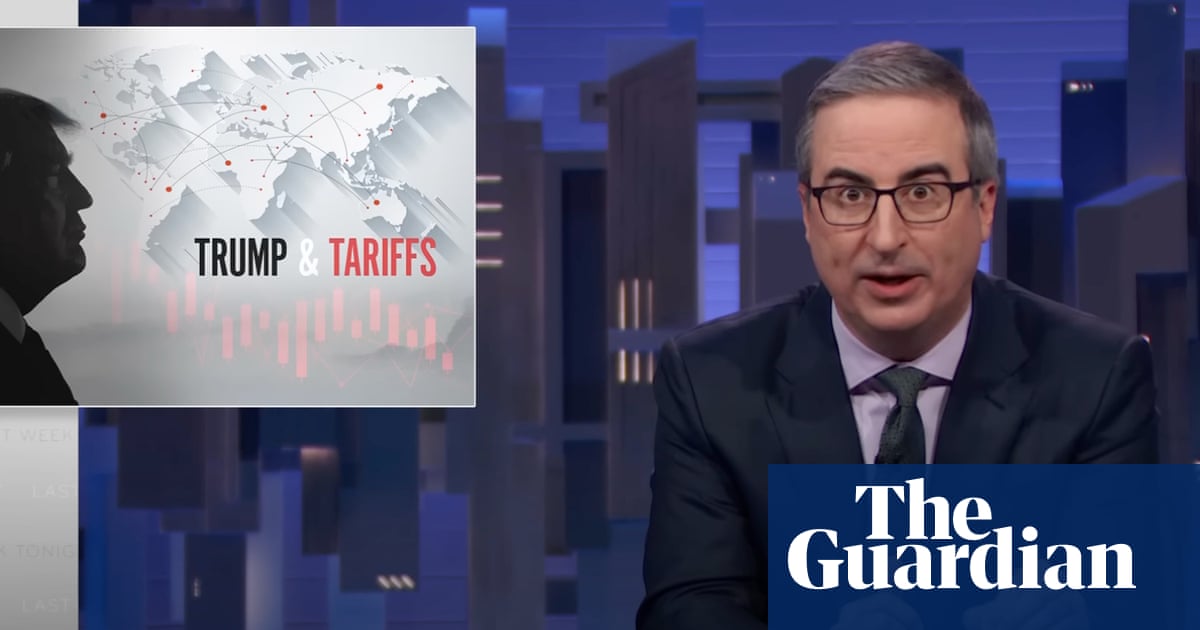John Oliver summed up a chaotic week for the US economy in what he called “an emotional rollercoaster” afterDonald Trump’s tariff drama.
The Last Week Tonight host devoted the episode to the back-and-forth decision-making which went from the president holding up the “single dumbest chart in human history” to the Dow plummeting 4,000 points in two days.
He initially held firm despite widespread backlash, claiming: “I know what the hell I’m doing” and stating that he had a lot of people sucking up to him afterwards and being nice.
Oliver said it was comparable to what would happen if you “suddenly found yourself in the same room as a monkey with a gun”.
He soon announced a 90-day pause but the “turmoil isn’t over” with a baseline 10% on all imports and 145% for China. Oliver called it “a monumental shift in US trade policy”.
He said it was all “incredibly stupid but it’s important to understand how stupid it was” and warned of “lasting repercussions”.
Trump’s tariffs should not have been a surprise, though, as they were spoken about on his campaign trail. He has “long believed that tariffs can fix our trade problems”.
But Oliver had questions over the endgame that various defenders have claimed could either be to raise revenue or bring jobs back home or just a form of scare tactic.
While many believe that it was intended to “shut out foreign competition and ensure stuff gets made here” the problem is that “lots of things aren’t produced in the US” even according to Howard Lutnick, the US secretary of commerce.
He spoke about mangos as an example which cannot be grown in the US so it would make no sense to add a tariff but they weren’t exempted from the tariffs. “Sometimes it feels like the best way to ensure Trump does something is to tell him not to do it,” Oliver said.
He compared him to a toddler, not just for that reason but also because of his “short torso” and “huge head” and how he “always looks like he’s about to fall over and won’t let anyone touch his hair”.
“If these tariffs stand they could have the opposite of the intended purpose as some business owners might realise it’s now cheaper to have a factory outside of the US and not have to deal with tariffs,” he said.
When it comes to manufacturing jobs, “a lot of them simply don’t exist any more because they’ve been automated” and tariffs would lead to “higher material and equipment costs”.
While lackeys are now claiming “they were never intended to be permanent” and were “a way to give Trump leverage to renegotiate bad trade deals”, the details are sketchy.
The White House claims 75 countries have since tried to negotiate new deals but they are not releasing a list. The existing tariffs are still “massively disruptive” and while Oliver is “not saying there aren’t countries where we have legitimate trade disputes”, he added: “Resolving those issues is difficult.”
The attacks on China have led to a fracture in the relationship that could see them “cutting off access to rare earth elements”, which help to make things like wind turbines and computer chips.
JD Vance controversially referred to Chinese peasants this week, which led to backlash. Oliver joked that he was the man who is “next in line to run the country if anything were to happen to Elon Musk”.
The US vice-president was heavily criticised and ridiculed in China to which Oliver said it was satisfying to “come together to agree that it is fun to dunk on this cursed cabbage patch bitch”.
Any negotiating power has also been ruined as “everyone knows [Trump] just blinked” and it “could all cost us an awful lot” as the “world’s trust in America has been shattered”.
He added: “While everyone might wanna pretend that this crisis is past us, it’s just not,” and “We dodged a bullet but the monkey still has a gun.”
